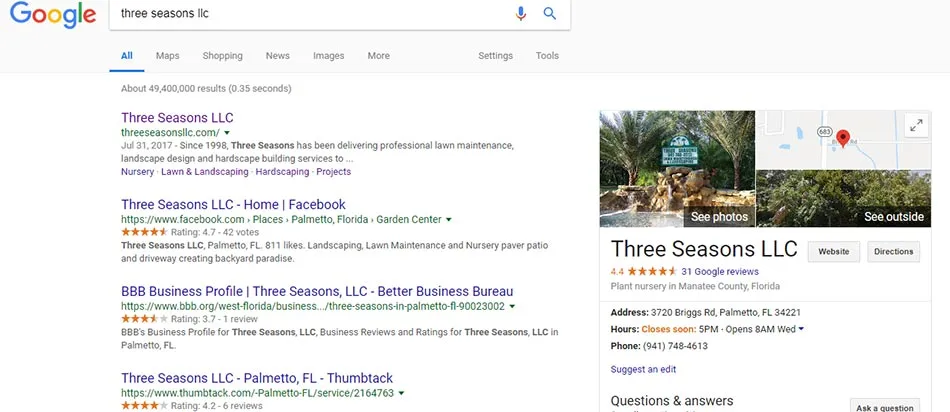
As with just about anything in business, it isn’t enough to know that something is important. It is perhaps more vital to understand why that item is important and how it can be leveraged through a viable strategy.
With this core sentiment in mind, we will use this post to explore a strategy for engaging your customers, with the goal of receiving reviews from them. We will also address why reviews are such an important aspect of increasing your search engine rankings.
To explain the strategy in broad strokes, you first set up a system to request reviews. Next, you focus on obtaining reviews on the most impactful search and social platforms, then expand to home service platforms, then expand to general directories, and finally, make sure to maintain a consistent effort over time.
Now that we have sketched out the outline of what will become your strategic masterpiece, let’s go ahead and paint in the details.
The initial step in your strategy is to communicate with your clients. In doing so, you will want to guide them using direct links, as was discussed in our previous article about how to get your customers to leave an online review. Also, offer at least two platforms that they can leave a review on.
Many times you’ll find that your customers will leave a review on more than one platform if they are offered the options.
Use this opportunity to establish a good foundation for your future reviews. Focus first on clients that you know are happy with your work.
Without a doubt, the two most impactful platforms for reviews are Google and Facebook, with Google being the more influential of the two, and the first option you should give to your clients.
Many of our clients ask, "what if my customer doesn't have a Google account?". It would be safe to say that a majority of the population has a Google account, one reason being almost everyone with an Android device has a Google account. If they really don't have a Google account, that is why you offer multiple options for platforms.
Once you have acquired at least ten reviews on Google, funnel your customers more towards Facebook, by listing it first in your communications for review requests.
When you have built up your Google and Facebook reviews to the point that there are now multiple reviews on both platforms, it is safe to expand the review options to include home service websites like Angie’s List, Houzz, Thumbtack, and Porch.
General directories can be added as well, such as Better Business Bureau (BBB), Yelp, and Yellow Pages. Make sure that these extra options are additions to Google and Facebook, and not replacements for them. Also, try not to overwhelm your clients. Keep the review platform offerings to 4 or 5 at the most.
To reap the most benefit from this strategy, it is vital that you put out a sustained effort. We recommend that new requests for reviews should be sent at least once per month.
So now, let’s address exactly why reviews are important. First of all, reviews are so important for the simple fact that they greatly impact your rankings on search engine result pages (SERPs). This is especially true if you do a search for a business on Google Maps and also for local map pack results, which are the limited number of sites that appear under a map on a standard Google search for local services.
Following the advice we presented, regarding maintaining a level of consistency with requests for reviews, should yield you more reviews on a consistent basis over time. And, as it just so happens, steadily getting reviews over time makes a strong impact on how Google ranks you!
Furthermore, as you expand into obtaining reviews on other sites, your rankings will benefit from the importance that Google places on your company receiving reviews on multiple platforms. In fact, when someone searches your company on Google, many of the websites that you have ratings on will be shown in the results with stars.

By following the strategy of reaching out to your clients and providing them with a couple of direct links, placing the primary focus on Google and Facebook initially, then expanding your review platform options to include home service and directory websites, and consistently earning new reviews, you will see tangible results. We know this strategy works because we have executed this approach countless times for our clients.
One final nugget that is important is the fact that, even though you initially want to focus your efforts on obtaining reviews from clients you know like your work, negative reviews will not hurt your organic rankings, unless you have a “convincing negative reputation”, as stated by Google in their Search Quality Evaluator Guidelines. In this document, they also state that negative reviews are “completely normal and expected”.
Follow the review building strategy we have offered and feel free to share with us the results that you observe.






Thanks for your comment!
Thanks for your feedback! Your comments have been successfully submitted! Please note, all comments require admin approval prior to display.
Error submitting comment!
There is a problem with your comment, please see below.